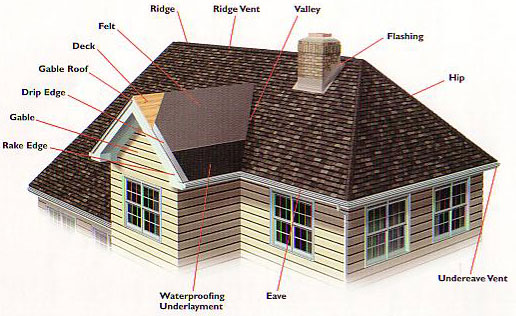Roof Certifications: Why You Should Have One Completed
There are many factors to consider when buying a new home, most of which the seller might have considered when looking to put their home on the market. Most people are aware of home inspections and other similar pre-sale activities in which any faults with the house are made transparent.
However, what many people don’t consider (and should) are roof certifications for their home.
WHAT ARE ROOF CERTIFICATIONS?
Roof certifications are similar to a home inspection, although home inspectors don’t typically perform in-depth inspections of the roof. While home inspections are still suggested before selling or buying, an inspection from roofing contractors can give you a thorough insight into the quality of the roof. These insights might include:
Any possible movement of the roof
The condition the materials such as roofing shingles
The quality of ridges, caps, and drip edges
The integrity of gutter system overall
How well the flashing in various areas is holding up
Basic observations such as a leaky roof
If no repairs are necessary, the roofing company will issue a certification which states the quality of the roof and how many years remain in its lifespan. The length of the certification varies, but can be between two and five years.
If your roof does require repairs, you will need to have those repairs completed before the roofing company issues you a certification.
WHAT DO INSPECTORS TAKE INTO ACCOUNT?
There are many factors that the roofing inspector will take into consideration during his or her assessment. They are:
Roofing Material
The contractor will look at the type of material your roof is composed of, such as shingled roof, wood shake, tile, slate roof, composite, etc.
Age
While the age of your roof is typically a direct indication of integrity, it isn’t a one-size-fits-all scale. The roofing material will largely impact the lifespan of your roof. For instance, a wood shake roof will often begin degrading after 10 years or so, while a tile roof can last up to 50 years without major repair if it’s been well maintained.
Pitch
The pitch is basically the steepness of your roof, in other words a measure of the degree in which your roof slopes. The reason that this is taken into consideration is because (usually) the contractor will charge more if your roof has a high pitch.
Layers and Repairs
Finally, the contractor will determine how many layers your roof has as well as any previous repairs. In most cases, adding layers to your roof will shorten the lifespan quite considerably and some states have ordinances stating the maximum layers before a complete roof replacement is required. It’s a good idea to tell your contractor about previous repairs also, since they will make sure the repairs were done correctly.
Your roofing contractor might take other aspects into account when performing their inspection.
Even though it’s highly suggested that you have a roofing inspection completed before selling or buying a home, you should have your roof inspected at least twice a year anyway. Roof certifications can help you maintain the integrity of your roof and ensure that it lasts as long as possible.
If you’re planning to buy or sell a home, or simply want to know the integrity of your roof, give us a call today.


Leave a Reply
Want to join the discussion?Feel free to contribute!